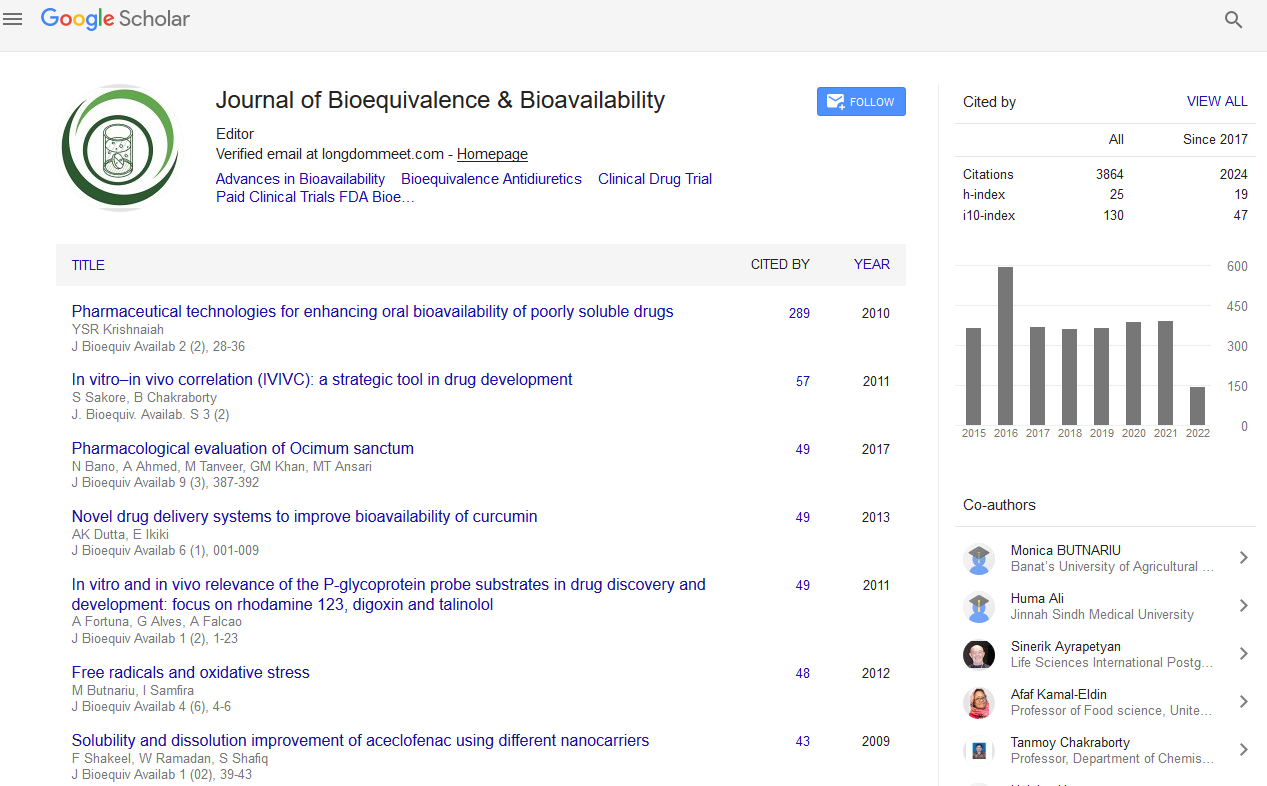PMC/PubMed Indexed Articles
Indexed In
- Academic Journals Database
- Open J Gate
- Genamics JournalSeek
- Academic Keys
- JournalTOCs
- China National Knowledge Infrastructure (CNKI)
- CiteFactor
- Scimago
- Ulrich's Periodicals Directory
- Electronic Journals Library
- RefSeek
- Hamdard University
- EBSCO A-Z
- OCLC- WorldCat
- SWB online catalog
- Virtual Library of Biology (vifabio)
- Publons
- MIAR
- University Grants Commission
- Geneva Foundation for Medical Education and Research
- Euro Pub
- Google Scholar
Useful Links
Share This Page
Journal Flyer

Open Access Journals
- Agri and Aquaculture
- Biochemistry
- Bioinformatics & Systems Biology
- Business & Management
- Chemistry
- Clinical Sciences
- Engineering
- Food & Nutrition
- General Science
- Genetics & Molecular Biology
- Immunology & Microbiology
- Medical Sciences
- Neuroscience & Psychology
- Nursing & Health Care
- Pharmaceutical Sciences
The role of scientific justification in the nascent US biosimilars approval pathway
International Conference and Exhibition on Biowaivers & Biosimilars
September 10-12, 2012 Hilton San Antonio Airport, USA
Ben Kaspar
Scientific Tracks Abstracts: J Bioequiv Availab
Abstract:
The term ?scientific justification? is used 15 times in the FDA Guidance for Industry entitled ?Scientific Considerations in Demonstrating Biosimilarity to a Reference Product.? Approaches to biosimilar development requiring justification include minor protein alterations, duration of immunogenicity studies, and the types of clinical trials to be conducted based on available sponsor and innovator data. Frequent mention of scientific justification suggests that, in the absence of mechanisms to establish the identical character of a biosimilar and innovator, the quality of existing data will impact clinical trial requirements. Openness to scientific discussion creates an opportunity to review the specific evidentiary needs of each biosimilar with the Agency and to tailor development programs accordingly. It also creates an implicit partnership between sponsors and the FDA in developing scientifically sound approaches to biosimilar approval. Meeting this partnership challenge requires effective scientific dialog with the FDA. Herein we review the specific instances where scientific justification is mentioned in the recent FDA Guidance with an emphasis on obtaining maximum leverage from available data to focus and drive clinical development. We compare and contrast the proposed biosimilars pathway with international guidelines and the 505(b)2 pathway, a regulatory mechanism established for comparison of variant small molecule drugs with innovators. In addition, we illustrate a number of development scenarios including how data from previous approval of a biosimilar in Europe may affect the direction of additional clinical trials. We conclude that sponsors must prepare for and lead scientific discussion to successfully navigate the nascent US biosimilars pathway
Biography :
Ben Kaspar obtained his Master?s degree in Biochemistry from Case Western Reserve University in 2008. He is a regulatory strategist and writer at MMS Holdings Inc., Canton, MI. Ben has worked on multiple regulatory scenarios involving biosimilars and co-authored a recent manuscript on the future of biosimilars regulation in the United States that was published in the Journal Clinical Therapeutics.


